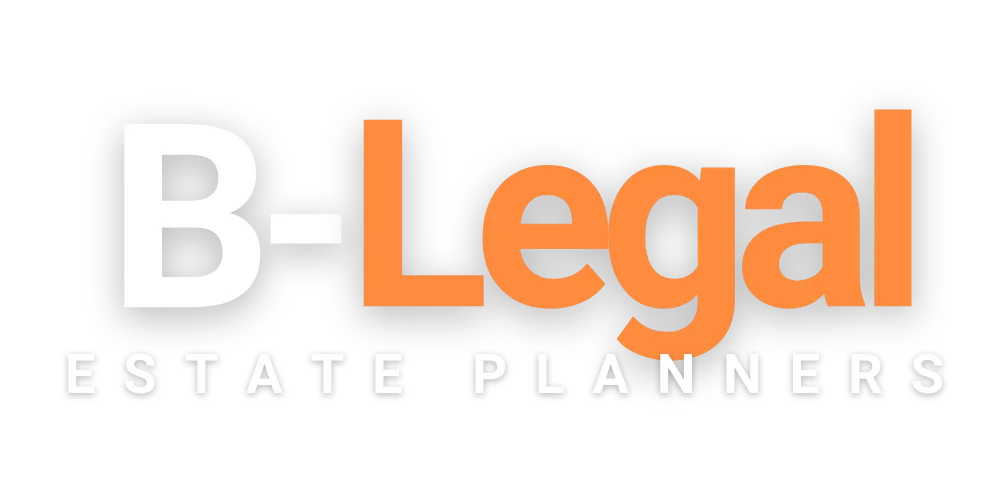Power of Attorney Online
Obtain a Power of Attorney easily from home with B-Legal. Exceptional value starting from just £200 ensuring affordability for all.
Don't delay creating your
Power of Attorney
At B-Legal, we're passionate about making Power of Attorney easy and affordable for everyone. With our friendly service, you can secure your document from just £200 - no surprises, just simple and cost-effective support for your peace of mind.
How to get your Lasting Power of Attorney

Provide personal info.
Kindly provide the names, addresses, and birthdates of your chosen attorneys for the documentation.

Expert review
After our specialists review your papers, they'll be dispatched without delay.

Sign and date
Just add your signature and the date, and they're ready for registration.

Post to register
After registration, your ready-to-use document will be returned to you.
For assistance anytime, just ring us at 0808 1 750490
Lasting Power of Attorney explained
What is a Lasting Power of Attorney?
A Lasting Power of Attorney (LPA) is an official form that allows you (the 'donor') to nominate individuals ('attorneys') to manage your affairs or decide for you if you can't.
It ensures your affairs are in trusted hands if you're ever incapacitated due to illness or injury.


Health & Welfare LPA
A Health and Welfare Lasting Power of Attorney enables your chosen attorney to oversee aspects such as:
Personal care routines like bathing, clothing, and dietary choices
Healthcare provisions
Residential and care home arrangements
Decisions regarding life-preserving procedures
This authority activates only if you're no longer able to make decisions for yourself.
Property & Finance LPA
A Property and Financial Affairs Lasting Power of Attorney authorizes your attorney to handle your financial matters, such as:
Overseeing bank and building society transactions
Handling bill payments
Administering benefit or pension collections
Facilitating the sale of your property
This LPA can be utilized immediately after registration, provided you have given consent.


Signing your Lasting Power of Attorney
Signing and dating your documents is straightforward—just adhere to the given instructions for correct execution. After signing, your documents are prepared for registration.
At B-Legal, we ensure the documents are marked distinctly, guiding you to sign accurately and confidently.
Registering your documents
The Office of the Public Guardian (OPG) applies a registration fee ranging from £0 to £82 for each Lasting Power of Attorney.
This fee isn't covered in our pricing.
Our service will inform you about the applicable registration fees. You'll pay these fees directly to the OPG once registration commences. You have the choice to pay via card or cheque; if you opt for card payment, the OPG will reach out to you for the payment at the appropriate time.
There's no set deadline for registering your documents after completion, but remember they only become legally effective once registered.

Needing a helping hand?
Our team of experts is here to assist you at each stage of the process.

Our services

Wills with Trusts
Wills with Trusts combines estate planning methods, enabling specific asset distribution, potential tax benefits, and controlled support for beneficiaries after the testator's demise.

Lifetime Trusts
Lifetime Trusts, established during the settlor's lifetime in the UK, offer strategic estate management, asset protection, and tailored beneficiary provisions for future financial security.

Lasting Power of Attorney
Lasting Power of Attorney (LPA) in the UK enables individuals to appoint trusted persons to manage their health, welfare, or financial affairs in potential future incapacity scenarios.
Prefer a Home Visit ? Book a home visit
Prefer a face-to-face discussion about your estate planning? B-Legal offers the convenience and comfort of home visits. Our trusted associates are ready to meet you in your own home, ensuring a personalized and private experience.
During the visit, they will provide detailed guidance on wills, powers of attorney, and trusts, tailored to your unique circumstances. Schedule your home visit today and embark on your estate planning journey with the utmost confidence and ease.
Clients Feedback
Explore Your Options: Online, Zoom, or Home Appointments - We Have a Service to Suit Every Budget
Navigating the complexities of Power of Attorney is made easy with B-Legal's comprehensive services. Whether you prefer the convenience of online, Zoom, or home appointments, we have a solution that fits your needs and budget.
Experience the simplicity of establishing a Power of Attorney online with B-Legal. Our platform connects you with accredited legal advisors who specialize in Power of Attorney arrangements, ensuring a secure and streamlined process.
Whether you're planning for future healthcare decisions, financial management, or safeguarding your assets, our digital solutions are designed for clarity and ease of use. B-Legal's commitment to accessible and trustworthy online legal services transforms how you prepare for tomorrow.
Protect your autonomy and ensure your wishes are honored with B-Legal's expertly guided online Power of Attorney services. Trusted by clients nationwide, B-Legal stands as a beacon of innovation in online estate planning.
Discover why our clients recommend B-Legal for seamless, professional online Power of Attorney services.
Insights and Advice

Understanding the Inheritance Tax Challenge: The Sandbanks Case
Understanding the Inheritance Tax Challenge: The Sandbanks Case
A Tale of Legacy and Liability: The Sandbanks Family’s Inheritance Tax Ordeal
In the picturesque locale of Sandbanks, known for its stunning coastal views and high-value properties, a family's story unfolds, highlighting the stark realities of inheritance tax challenges in the UK. After owning their family home for over 80 years, the Sandbanks family faced the daunting prospect of selling this cherished asset due to a substantial inheritance tax bill.
This real-life scenario serves as a poignant illustration of the complexities and often harsh realities of inheritance tax. In the UK, estates exceeding a certain threshold are subject to a 40% tax rate, a significant financial burden for many families. For the Sandbanks family, their long-held home, a symbol of their heritage and memories, became a source of financial strain.
Their story is not unique but echoes a common concern among many families across the UK. As property values continue to rise, more estates are finding themselves above the inheritance tax threshold. This situation is exacerbated by the fact that the nil-rate band has been frozen for years, not keeping pace with inflation and property price growth.
The Sandbanks case exemplifies the critical need for proactive and strategic estate planning. It underscores the importance of understanding how inheritance tax works, the potential impact it can have on your assets, and the steps you can take to mitigate its effects.
In the following sections, we will explore effective strategies for estate planning, emphasizing the need to prepare ahead to protect your legacy and ensure that your family home, like the one in Sandbanks, can be preserved for future generations.

A Tale of Legacy and Liability: The Sandbanks Family’s Inheritance Tax Ordeal
Strategies for Effective Estate Planning to Mitigate Inheritance Tax
Mastering the Game: Estate Planning Tactics to Shield Your Assets
Estate planning, much like a game of chess, requires strategic foresight and understanding of the various pieces at your disposal. For those seeking to navigate the complexities of inheritance tax in the UK, like the Sandbanks family, adopting effective estate planning strategies is key to safeguarding your assets and legacy. Here, we explore some of the primary tactics that can be employed to mitigate the impact of inheritance tax.
Gifting Assets
One of the most straightforward strategies is gifting assets during your lifetime. The UK tax law allows for certain gifts to be exempt from inheritance tax if you survive for at least seven years after making the gift. This can include cash, property, or other valuable items. However, it’s essential to plan these gifts carefully to avoid unexpected tax implications.
Setting Up Trusts
Trusts are powerful tools in estate planning. By placing assets into a trust, you can exert control over how and when your assets are distributed, while potentially reducing inheritance tax liabilities. Trusts can be particularly useful for passing on assets to future generations or managing funds for specific purposes, like education or healthcare.
Life Insurance Policies
A life insurance policy, written in trust, can provide a lump sum to your beneficiaries outside of your estate. This can be used to cover any inheritance tax due, ensuring that your assets are not eroded by tax liabilities.
Business Relief
For business owners, Business Relief can offer significant reductions in inheritance tax on business assets. This relief ranges from 50% to 100%, depending on the type of assets, allowing for a more substantial portion of your business legacy to be passed on tax-free.
Charitable Donations
Donations to charity are not only a way to support causes you care about but can also be a strategic move in reducing inheritance tax. Legacies left to charity are exempt from tax, and if you leave at least 10% of your net estate to charity, the IHT rate on the rest of your estate could be reduced.
Through these strategies, you can create a robust plan to protect your assets from significant tax liabilities, much like the Sandbanks family could have benefitted from. Estate planning is a dynamic process that should be revisited regularly to adapt to changing laws and personal circumstances.
In the next section, we will delve into the critical role of Wills and Trusts in estate planning, ensuring your assets are managed and distributed according to your wishes.
The Role of Wills and Trusts in Estate Planning
Securing Your Legacy: The Power of Wills and Trusts
In the landscape of estate planning, Wills and Trusts stand as pivotal tools, each playing a unique role in safeguarding your assets and ensuring your wishes are honored. For families like the one in Sandbanks, understanding and utilizing these instruments could have been a game-changer in their inheritance tax situation. Let's delve into how these tools can be effectively employed in your estate planning strategy.
The Significance of a Well-Crafted Will
A Will is the cornerstone of any estate plan, offering clarity and direction on how your assets should be distributed upon your death. Without a valid Will, your estate may fall under the rules of intestacy, which can lead to unintended beneficiaries and potential tax inefficiencies. A carefully drafted Will ensures that your assets are allocated as per your wishes, possibly utilizing various tax allowances and exemptions to reduce inheritance tax liabilities.
Trusts: A Strategic Asset Management Tool
Trusts serve as a versatile mechanism for managing your assets, offering both control and protection. By placing assets into a trust, you can specify how and when they are distributed, potentially reducing the taxable value of your estate. Trusts can be particularly beneficial for setting aside funds for specific purposes, such as children's education or support for a family member.
Life Interest Trusts: These allow you to grant a beneficiary the right to receive income or benefits from the trust during their lifetime, with the principal going to another beneficiary upon their death. This can be an effective way to provide for a spouse while ensuring that the principal is preserved for children or other heirs.
Discretionary Trusts: With these trusts, the trustees have discretion over how to use the trust income and capital. This flexibility can be invaluable in responding to changing circumstances and needs of the beneficiaries.
Property Trusts: For homeowners, placing property in a trust can be a strategic move to manage inheritance tax implications and protect the family home.
The Importance of Professional Guidance
Given the legal complexities and potential tax implications of Wills and Trusts, seeking professional advice is crucial. An expert can help tailor these instruments to your specific needs, ensuring that they are both legally sound and tax-efficient.
Incorporating Wills and Trusts into your estate planning not only secures your legacy but also offers peace of mind, knowing that your assets are protected and will be distributed according to your wishes. As we've seen from the Sandbanks family's experience, the absence of such planning can lead to unintended consequences.
Seeking Professional Advice: A Necessity in Estate Planning
Navigating the Maze: Why Professional Estate Planning Guidance is Invaluable
The complexity of estate planning, especially in the context of inheritance tax, cannot be overstated. As the Sandbanks family's situation illustrates, the stakes are high, and the consequences of inadequate planning can be significant. In this intricate landscape, seeking professional advice is not just a recommendation, but a necessity.
The Value of Expertise
Estate planning experts bring a wealth of knowledge and experience, ensuring that your plan is both comprehensive and compliant with current laws. They can provide insights into the most effective strategies to mitigate inheritance tax and tailor these strategies to your unique circumstances. This includes navigating the nuances of Wills and Trusts, understanding tax reliefs and exemptions, and planning for future changes in legislation.
Tailored Solutions for Complex Situations
Every family's situation is unique, and a one-size-fits-all approach does not work in estate planning. Professionals can help design a plan that reflects your specific family dynamics, asset types, and long-term goals. Whether it's setting up trusts, planning for business succession, or ensuring that your global assets are considered, an expert can navigate these complexities with precision.
Ongoing Support and Peace of Mind
Estate planning is not a one-time task; it requires ongoing management and adaptation to changes in your life and the law. Professionals offer continued support, helping you update your plan as needed and providing peace of mind that your estate is in good hands.
Case Study Insights
Drawing from a breadth of experience, professionals can offer insights from similar cases, providing a clearer understanding of potential outcomes and strategies. This experiential knowledge can be invaluable in avoiding common pitfalls and maximizing the effectiveness of your estate plan.
In conclusion, while it's possible to undertake some aspects of estate planning on your own, the complexity and importance of the task make professional advice an indispensable part of the process. By engaging with experts, you can ensure that your estate plan is robust, efficient, and most importantly, reflective of your wishes, safeguarding your legacy for future generations.
Conclusion: Securing Your Legacy with Strategic Estate Planning
Embarking on a Journey of Informed Estate Planning
As we conclude this guide on navigating inheritance tax through strategic estate planning, it's clear that the journey to secure your legacy is both important and intricate. The story of the Sandbanks family serves as a potent reminder of the impact that inheritance tax can have on a family's legacy and the critical importance of being prepared.
Key Takeaways
Understand Your Liability: Recognize the potential impact of inheritance tax on your estate and the importance of planning ahead.
Employ Effective Strategies: Utilize tools like gifting, trusts, life insurance policies, and charitable donations to mitigate inheritance tax.
The Power of a Will: Ensure your wishes are respected and your assets are distributed efficiently by drafting a well-thought-out Will.
Seek Expert Advice: Consult with professionals to navigate the complexities of estate planning and tailor a plan to your unique circumstances.
Act Early, Act Wisely
Proactive and strategic estate planning is not just about tax efficiency; it’s about peace of mind. Knowing that your legacy will be preserved and passed on according to your wishes offers a sense of security that is invaluable. The steps you take today can have a profound impact on your family's future, turning a potentially challenging situation into a legacy of care and foresight.
Your Legacy, Your Way
At B-Legal, we understand the nuances of estate planning and inheritance tax. Our team is dedicated to providing bespoke advice and solutions that reflect your unique needs and goals. Contact us to begin your journey towards effective estate planning, and rest assured that your legacy is in safe hands.
Frequently Asked Questions
1. What is a Lasting Power of Attorney (LPA)?
An LPA is a legal document allowing one person (the attorney) to make decisions on behalf of another (the donor). It's used when the donor either no longer wishes or is unable to make decisions due to a lack of mental capacity. The LPA specifies the type of decisions the attorney can make and under what circumstances.
2. What are the types of LPAs?
There are two types:
Health and Welfare LPA: Effective when the donor loses mental capacity. Decisions include living arrangements, medical treatments, diet, contact with others, and activities.
Property and Financial LPA: Can be effective before or after the donor loses mental capacity. Decisions include managing finances, property transactions, and investments.
3. How do I register a Power of Attorney?
Registration involves choosing an attorney, getting signatures from a certificate provider and attorneys, notifying people (optional), submitting forms to the Office of the Public Guardian (OPG), and waiting for OPG registration, which can take 8-10 weeks.
4. What are the fees for registering a Power of Attorney with the OPG?
The fee is £82 per document, paid directly to the Office of Public guardian. Exemptions or reductions are available based on income and financial circumstances.
5. When should I start acting as an attorney?
You should begin acting as an attorney once the LPA is registered with the OPG. For health and welfare LPAs, you act when the donor loses capacity. For property and financial LPAs, you can act before or after the donor loses capacity, based on their preference.
6. What duties does an attorney have?
Duties include acting in the donor’s best interests, applying a duty of care, following instructions, helping the donor make decisions, maintaining confidentiality, and for property and financial affairs, keeping accounts and financial separation.
7. What does it mean to ‘act in the best interests’ of the donor?
Acting in the best interests involves considering the donor’s wishes, beliefs, values, and circumstances, avoiding assumptions, and respecting the views of those close to the donor.
8. Can a donor appoint more than one attorney?
Yes, donors can appoint joint attorneys (who must act together) or joint and several attorneys (who can act independently or together).
9. What if I disagree with another attorney’s decision?
If you disagree with a co-attorney, try to resolve it directly. If unresolved, you may contact the OPG with evidence.
10. How do I know if someone lacks mental capacity?
Assume an adult can make their own decisions unless proven otherwise. A reasonable belief of lack of capacity should be based on the inability to understand, remember, weigh up, or communicate decisions. Professional assessments may be necessary in complex situations.
We simplify the process of creating
a will or granting power of attorney.
B Legal operate as a company registered in England & Wales Privacy Policy Terms & Conditions
Our registered office is Bankwood Lane, Rossington, Doncaster, England, DN11 0PS

